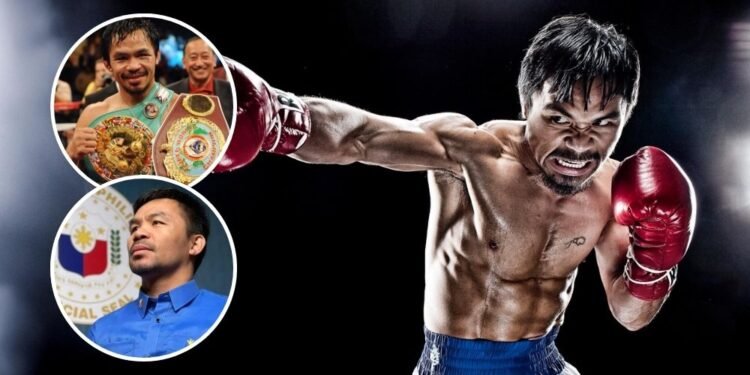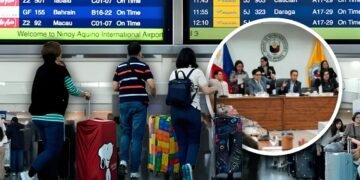Manny Pacquiao wasn’t built in a gym. He was built in hunger.
Born in the rough neighborhoods of General Santos City, Philippines, Pacquiao left school in grade six and worked odd jobs to support his family. At 12, he began boxing not for glory — but to survive. With no structured training or modern nutrition, he developed raw, aggressive skills sparring in local parks and dirt yards.
By 19, he shocked the world by winning his first world title — the WBC Flyweight belt — in Thailand. He had no promoter, no hype, and no blueprint. Just speed, power, and a will that couldn’t be taught.
The Only Eight-Division World Champion in History
What makes Pacquiao unique isn’t just his story — it’s the statistical impossibility of his achievements.
He is the only fighter in boxing history to win world titles in eight different weight divisions, ranging from 112 lbs (Flyweight) to 154 lbs (Super Welterweight).
He captured 12 major world titles across these divisions and beat future Hall of Famers along the way — including Marco Antonio Barrera, Erik Morales, Miguel Cotto, and Juan Manuel Marquez.
His size never caught up to his competition. His greatness outpaced it.
More Than a Fighter — A Business Titan
Pacquiao didn’t just fight. He sold fights.
Over the course of his career, Pacquiao headlined 26 pay-per-view events, generating over $1.3 billion in revenue. His 2015 bout with Floyd Mayweather remains the highest-grossing boxing match of all time, with over $600 million generated and 4.6 million PPV buys.
He was named Fighter of the Decade by the Boxing Writers Association of America (2000–2009) and earned multiple Fighter of the Year honors. Whether in Manila or Las Vegas, his name meant instant gravity.
Still Fighting — Still Making History
In June 2025, Pacquiao made history again: he became the first active boxer to be inducted into the International Boxing Hall of Fame. It’s a milestone typically reserved for retired legends. Pacquiao, at 46, is still preparing for a return to the ring — with a proposed fight against Mario Barrios in the works.
He was last crowned a world champion at age 40, becoming the oldest welterweight titleholder in history. Every time you count him out, he reinvents what’s possible.
Pacquiao didn’t just bring pride to the Philippines — he created an entirely new boxing economy.
- The number of boxing gyms in the Philippines tripled from 2000 to 2020.
- Government-funded boxing programs were rolled out nationwide during his peak.
- Dozens of Filipino fighters have signed international contracts citing Pacquiao as their inspiration.
He made boxing aspirational again. And accessible.
A Style That Couldn’t Be Replicated
Pacquiao’s style was uniquely chaotic — fast, angular, and overwhelming.
He threw punches in unpredictable clusters, often while switching stances mid-combo. Trainers across the sport struggled to prepare opponents for him. He wasn’t just a southpaw — he was a cyclone.
His knockout list includes legendary fighters across four decades, with 39 career knockouts — many of them against elite opponents.
Pacquiao’s influence extends well beyond boxing.
He served as a Philippine Senator from 2016 to 2022 and ran for President in 2022. He built hundreds of homes for the poor, funded education scholarships, and remains one of the most visible philanthropists in Southeast Asia.
He still walks the streets of the communities he came from. Not for cameras — but because he never left them in his heart.
Manny Pacquiao is a miracle in motion — not because he was destined for greatness, but because he refused to stop reaching for it.
He fought hunger, weight, time, critics, and political systems — and outlasted them all. While other athletes chase legacy, Pacquiao lives his.
He’s not just a Hall of Famer. He’s the definition of one.












